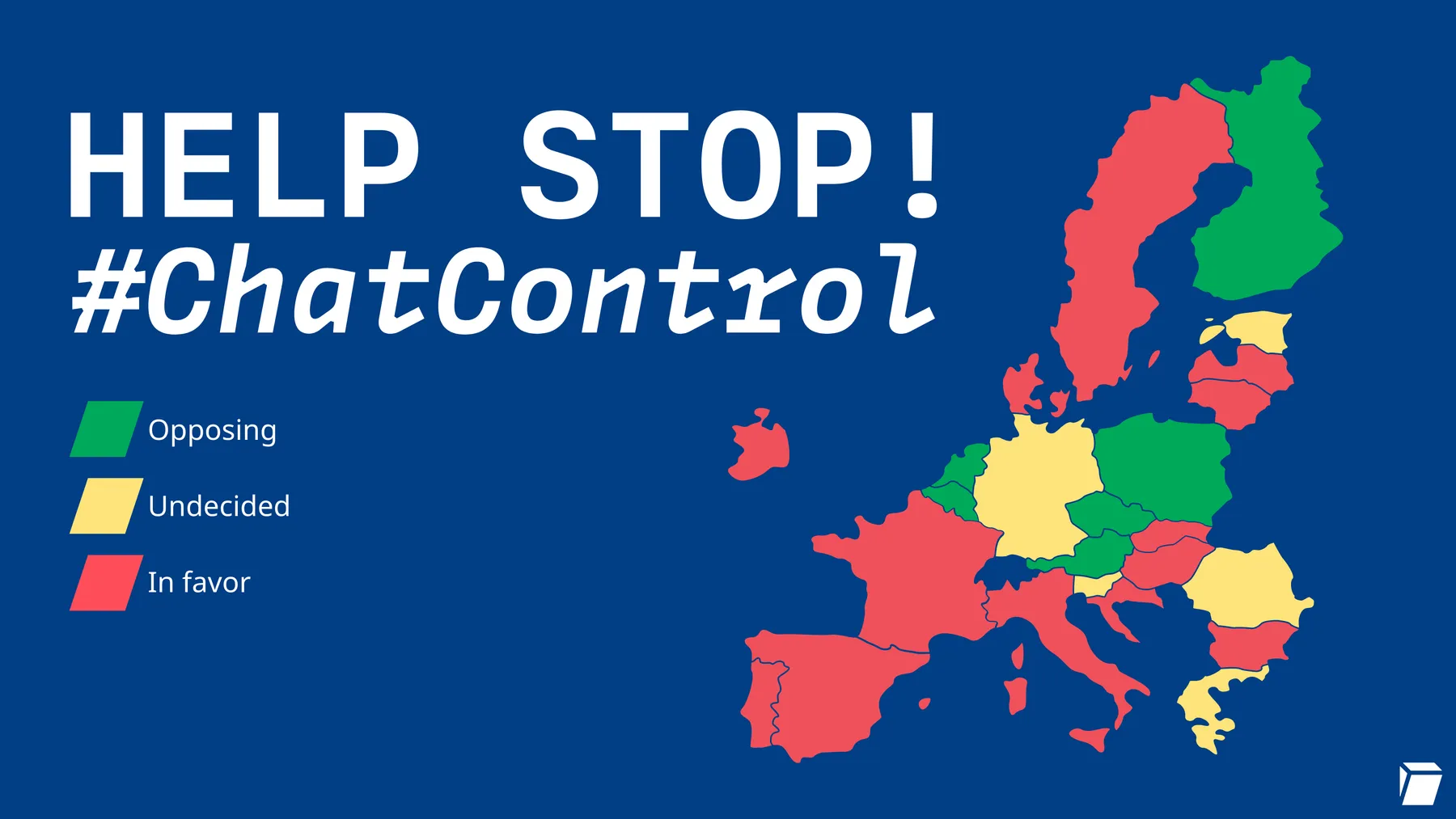“We will not stand by while the EU destroys encryption” – Tuta Mail ready to sue the EU over Chat Control
The German encrypted email provider has spoken out against the controversial CSAM scanning bill

- German encrypted email provider, Tuta Mail, is ready to sue the EU if the child sexual abuse (CSAM) scanning bill becomes law
- Nicknamed Chat Control, the proposal has attracted strong criticisms for undermining encryption protections
- EU members are set to share their positions on September 12, with adoption expected as early as October 2025
The German encrypted email provider Tuta Mail is ready to drag the EU into Court if the controversial child sexual abuse (CSAM) scanning bill becomes law.
Nicknamed Chat Control, the proposal has attracted strong criticisms among tech experts and politicians alike for its provisions around encryption. The bill seeks, in fact, to introduce new obligations for all messaging services operating in Europe to scan users' chats, even when they're encrypted, in the lookout for CSAM material.
"We will not stand by while the EU destroys encryption," says Matthias Pfau, CEO of Tuta Mail. "If Chat Control passes, we as an encrypted provider have two options: sue to fight for people’s privacy, or leave the EU. A third possibility – undermining the end-to-end encryption of Tuta Mail – is not an option for us. So we’d go with option one because everyone deserves privacy."
Tuta Mail isn't certainly alone in feeling this way. On Tuesday, September 9, over 500 cryptography experts signed an open letter to warn the EU Council of the risk of agreeing to the proposal in its current form.
With the first iteration unveiled in 2022, the Danish version of the proposal is so far the one with the most chances to pass. Despite the opposition growing, in fact, support among EU members remains stronger.
EU Council members are set to share their final positions on Friday, September 12, with adoption expected as early as October 2025 if an agreement is found.
How likely is Chat Control to pass?

According to the latest data, there are 15 countries supporting the law (including crucial members like France, Italy, and Spain), six opposing the law (Austria, Belgium, the Czech Republic, Finland, the Netherlands, and Poland), and six still undecided (Germany, Estonia, Greece, Luxembourg, Romania, and Slovenia).
Among the undecided, Germany is certainly the most crucial country, able to either block or back the bill depending on its position. Yet, according to a source with knowledge of the matter who talked to TechRadar, Germany may be considering abstaining from taking a position during the September 12 meeting.
This is something that will weaken the Danish mandate, "even if the Presidency gets the required votes to pass," explains TechRadar's source.
Pfau at Tuta still sees Germany's position as worrying, considering that, unlike the previous administration, the new government no longer clearly opposes the Chat Control proposal.
"Given the history of the ruling parties (CDU & SPD), it is much more probable that the new government will position itself in favor of Chat Control – even though it's highly likely that the law is infringing privacy rights granted to all citizens by the German Constitution," Pfau told TechRadar.
Nonetheless, "To us, it is a paradox that the German government has granted us €1.5 million to develop a drive solution with post-quantum encryption, and now EU politicians want to destroy this high level of security again with Chat Control," Pfau added. You can read Tuta's full statement here.
Encryption is indeed the technology that the likes of Tuta Mail, Proton Mail, Signal, and WhatsApp (but also the best VPN services) use to keep our communications private. A protection that mandatory scanning and detection technologies are set to dangerously undermine, warn experts.
You might also like

Chiara is a multimedia journalist committed to covering stories to help promote the rights and denounce the abuses of the digital side of life – wherever cybersecurity, markets, and politics tangle up. She believes an open, uncensored, and private internet is a basic human need and wants to use her knowledge of VPNs to help readers take back control. She writes news, interviews, and analysis on data privacy, online censorship, digital rights, tech policies, and security software, with a special focus on VPNs, for TechRadar and TechRadar Pro. Got a story, tip-off, or something tech-interesting to say? Reach out to chiara.castro@futurenet.com
You must confirm your public display name before commenting
Please logout and then login again, you will then be prompted to enter your display name.